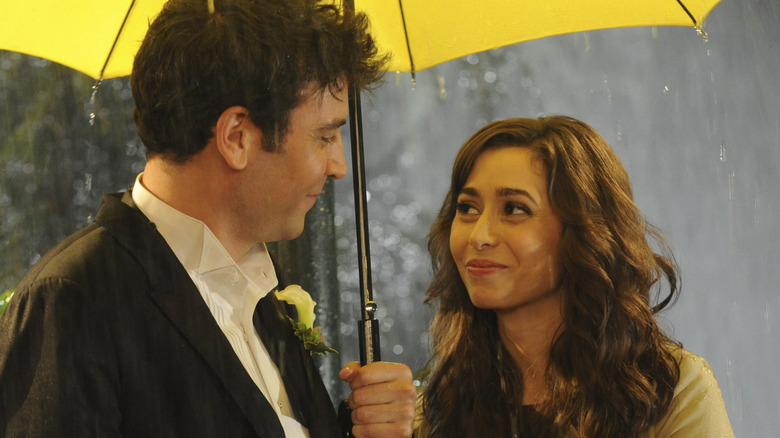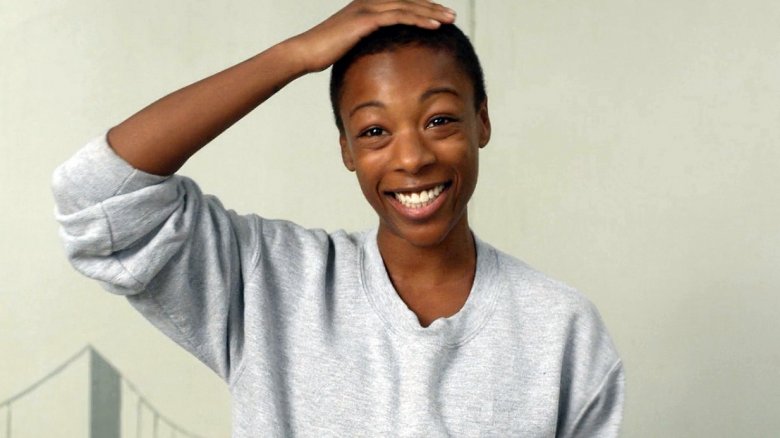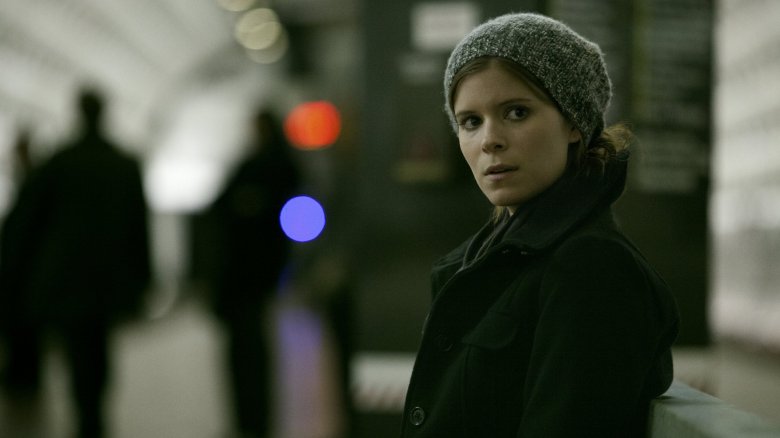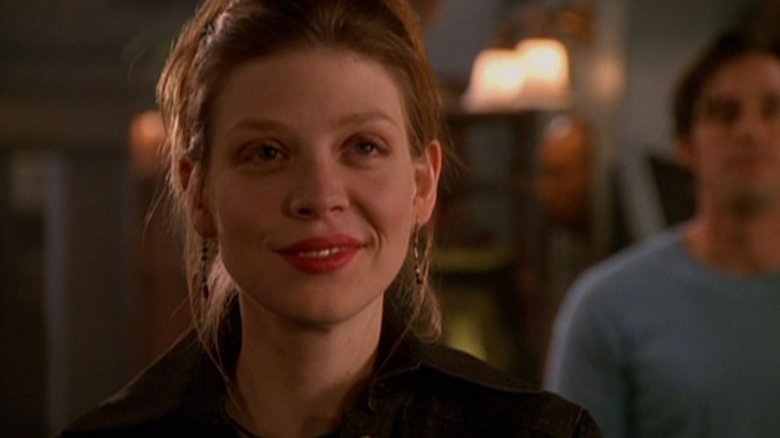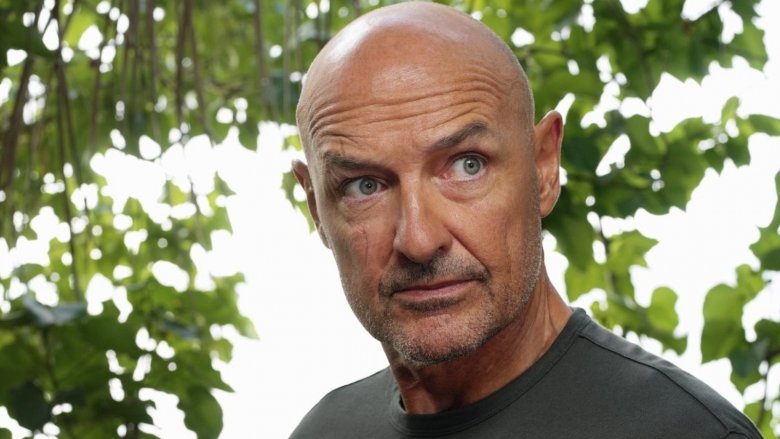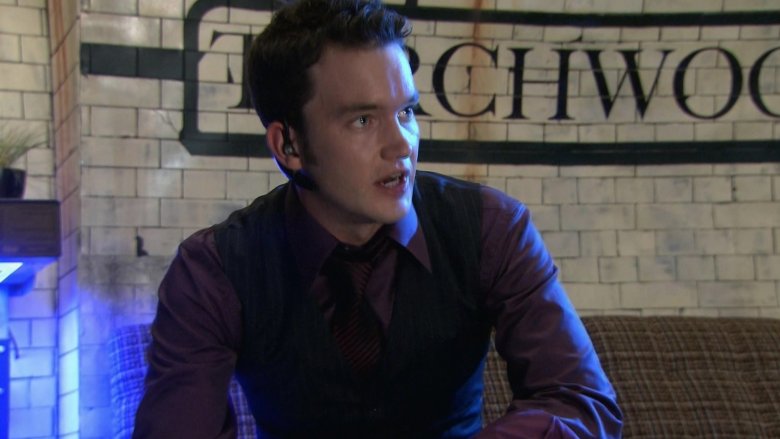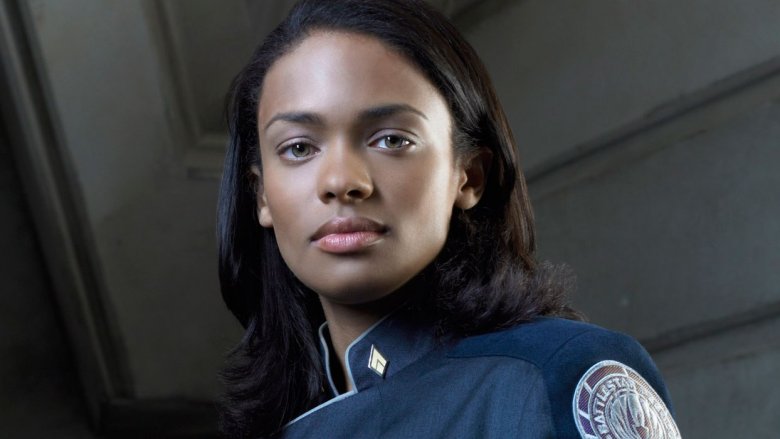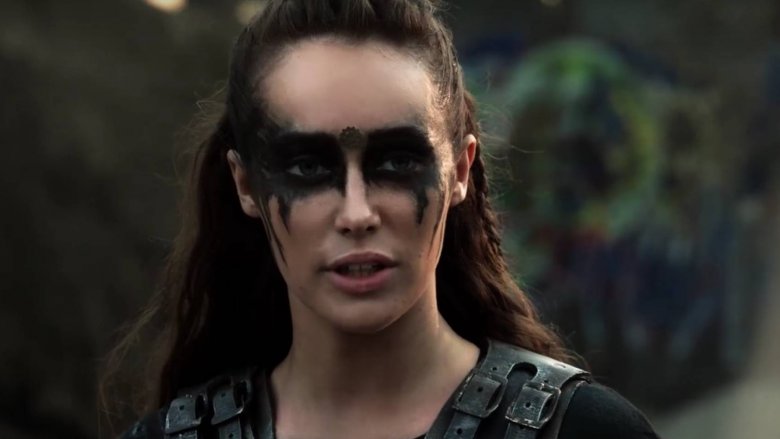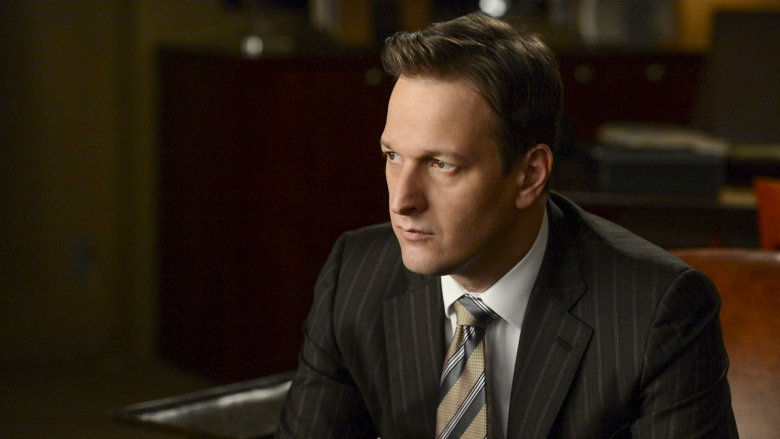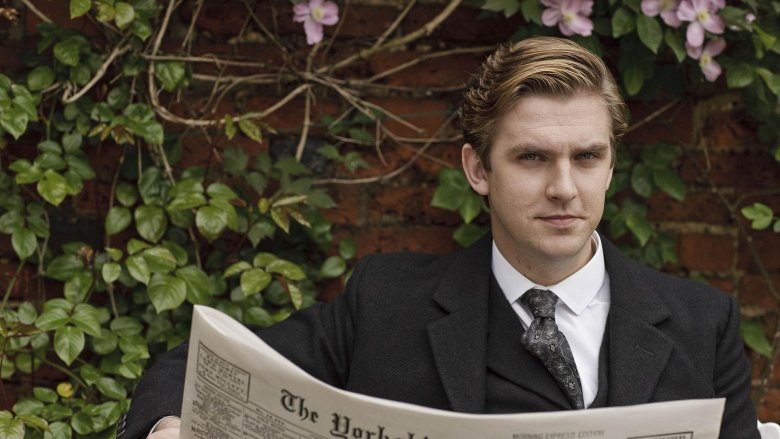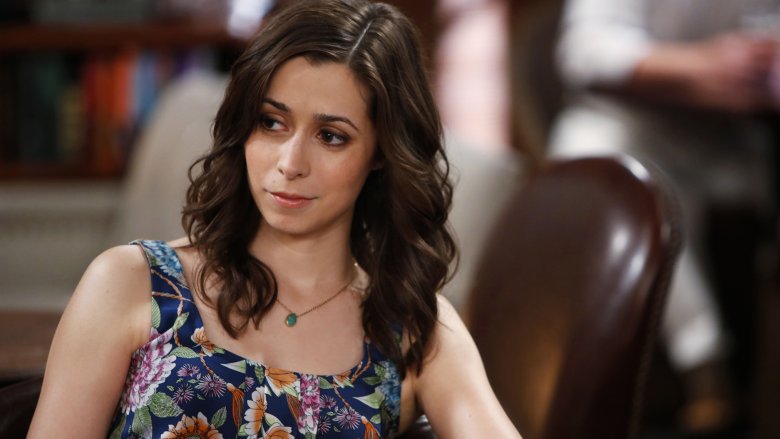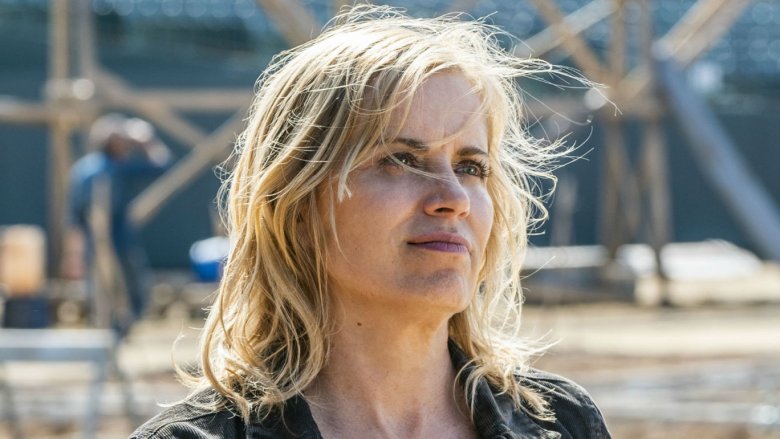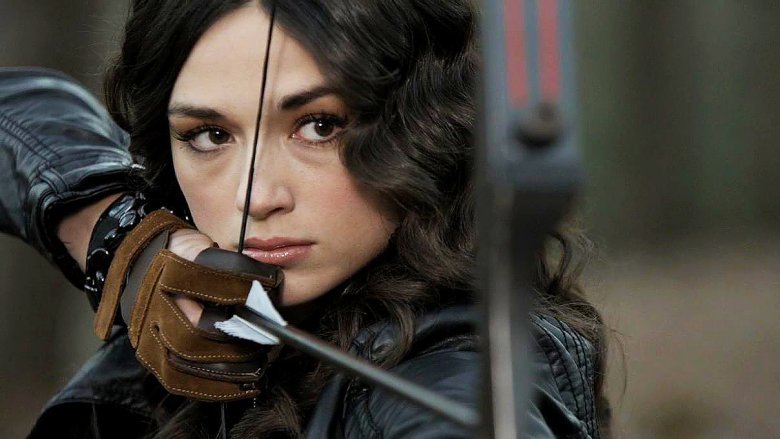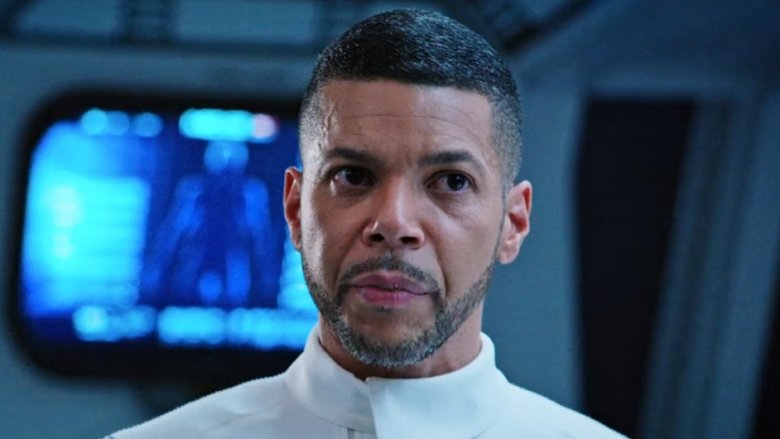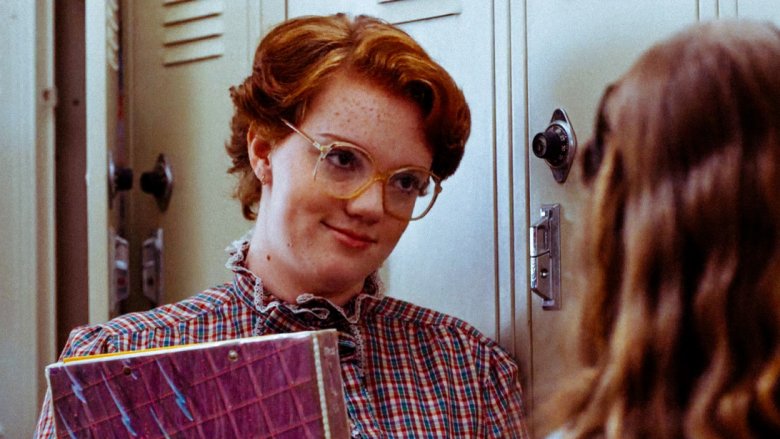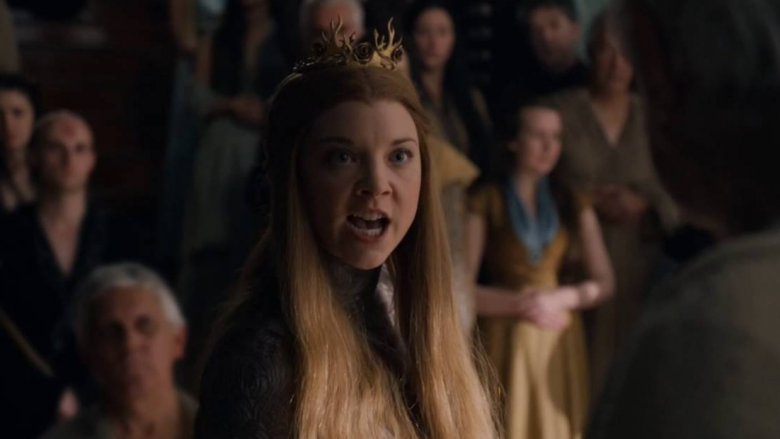TV Shows That Killed Off The Wrong Character
As television has become more serialized over the years, its storytelling has grown more serious and even cinematic, and major character deaths have become increasingly commonplace. Some shows, like Game of Thrones, The Wire, and The Walking Dead, have normalized death to the point that you never know who might die, and it's hard to say that any one death is poorly chosen because the possibility of death is so woven in to the fabric of the show.
Sometimes, on the other hand, a death is poorly planned or poorly executed, and it stands out like a sore thumb. Series creators might choose to kill a character for the drama, or they might be left with no choice because an actor wants to leave the show. Whatever the cause, if a character death is too jarring for viewers, it can leave a mark on the series that never fades. Here are some shows that chose poorly, and killed characters who should have lived.
Orange is the New Black
From the beginning, Netflix's Orange is the New Black has had a highly-developed sense of social justice and an accompanying interest in representation. With this comedy/drama set in a women's prison, creator Jenji Kohan and the writers attempt to balance a stark look at how criminal justice works (or, often, doesn't work) in America with a sense of comedy and a cast of likable characters, many of whom are LGBTQ women and women of color.
One of the most likable characters from day one was Poussey Washington (Samira Wiley), a smart and funny gay black woman who was in prison for minor drug charges. Of all the women on the show, she was perhaps the kindest and the most helpful to her fellow inmates. She also had moving relationship storylines, from her unrequited feelings for her best friend Tastee to her eventual relationship with another inmate, Brooke.
As the show was running, the Black Lives Matter movement was gaining steam in the real world, reacting against the unjust deaths of black Americans at the hands of law enforcement. Naturally, a show as interested in social justice as Orange is the New Black wanted to reflect that reality in a story. A major character death serves as a natural way to drive such an issue home, so in the fourth season, Poussey was strangled to death by a guard when she attempted to diffuse an escalating situation. Then the show went on to attempt to make the guard who killed her a sympathetic character. Fans were angry, and the show became that much grimmer for the loss of its most likable character.
House of Cards
In its first season, Netflix's House of Cards was a story told from two opposing angles: corrupt politician Frank Underwood (Kevin Spacey) and young investigative reporter Zoe Barnes (Kate Mara). As Frank plotted and schemed to gain more and more power, Zoe attempted to uncover the truth about him. Although he manipulated her for a while, and the two even shared a creepy sexual relationship, Zoe was the first to realize Frank had murdered Congressman Peter Russo (Corey Stoll) and wanted to see him brought to justice. That's where Season 1 ended, and it was reasonable to assume Season 2 would see her quest continue.
Instead, the Season 2 premiere saw Underwood murder Zoe Barnes by pushing her in front of a subway train. From that point on, it becomes a story about the bad guys winning, and loses all interest in having sympathetic protagonists. Moreover, Frank's murder of Zoe marks his turn from amoral politician who'd killed once in a moment of opportunity to cartoonish supervillain who can get away with anything. The series maintained most of its popularity, but in terms of storytelling, it never recovered.
Buffy the Vampire Slayer
Fifteen years ago, queer relationships were much less common on television than they are today, but Buffy the Vampire Slayer offered one shining example in the romance between Willow Rosenberg (Alyson Hannigan) and Tara Maclay (Amber Benson), two heroic witches whose powerful magic united them and blossomed into love. For a couple of years after they met in Season 4, nothing could keep them apart. Then, their relationship got rocky in Season 6, which wasn't too surprising on a show that always had a bit of soap opera in it.
What was surprising was the moment late in the season when, just as Willow and Tara had overcome their problems and were recommitting to their relationship, Tara was hit by a stray bullet fired by a villain who had come looking for Buffy. Tara died in Willow's arms, and the rest of the season became the story of Willow's unhinged quest for revenge against not just the villain in question, but the entire world. The loss of Tara was a blow to the show and its audience, and certainly an ignominious ending to one of television's first great lesbian relationships.
Lost
Frequently, when a long-running character on a TV series is killed off, it's because the actor who plays them wants to move on to other projects. Even when that's not the case, the death of the character usually leaves the actor no choice but to move on. That's what makes John Locke from Lost such an unusual case. Locke died halfway through the fifth season, but the actor who played him, Terry O'Quinn, was a regular on the show until it ended with Season 6.
In addition to flashbacks, Locke appeared in the Purgatory-esque "flash sideways" scenes during the sixth season. However, O'Quinn also took on a new role as the Man in Black, previously known as the Smoke Monster, who took Locke's shape as his primary human form after Locke's death. The character had another, more ancient incarnation, played by Titus Welliver.
John Locke, with his unshakeable and sometimes irrational faith in the power of the island, could be an aggravating character, but he was set up throughout the series as an important and heroic figure. Then he died a pathetic death, strangled with an extension cord in a hotel room, and his form was used by a force of evil. Ultimately, he finds peace in the afterlife (as does everyone), but it was really hard to watch that last season without thinking that Locke deserved better.
Torchwood
Torchwood, an edgier spin-off of Doctor Who about an extra-governmental agency that investigates the supernatural, just seemed addicted to killing its characters. More realistically, its actors became less interested in sticking around as the show struggled to find a stable position on British television. Toshiko Sato (Naoko Mori) and Owen Harper (Burn Gorman) both died at the end of Season 2. Well, technically Harper died well before that, but he remained on the show as a mystically-animated walking corpse. It was that sort of show.
As of Season 3, which was presented as a five-part miniseries called Torchwood: Children of Earth, only three actual members of Torchwood remained: Jack Harkness (John Barrowman), Gwen Cooper (Eve Myles), and Ianto Jones (Gareth David-Lloyd). However, Children of Earth had an even darker tone that made further death practically inevitable. Ultimately, it was Ianto Jones who payed the price.
This upset many viewers, particularly because Ianto was in a gay relationship with Torchwood leader Jack Harkness. Fans accused the series and its creators of homophobia, despite the fact that showrunner Russell T. Davies was himself a gay man, as was John Barrowman. Nevertheless, Davies had unintentionally stumbled into the "kill your gays" trope, a longstanding and unfortunate cultural habit of killing LGBTQ characters in fiction. You may have already noticed that problem coming up on this list, and it will come up again.
Battlestar Galactica
The 2004 reboot of Battlestar Galactica started out dark and got progressively darker. It begins with a human population on the run from their own apocalypse at the hands of the android Cylons, looking for a lost colony called Earth. Eventually, that quest unites the human fleet with Cylon allies who are also looking for a home. Then, during the mid-season finale of Season 4 (the show's last), they find the planet Earth in ruins, an uninhabitable radioactive wasteland destroyed by a nuclear war millennia earlier. Naturally, many of the characters lose all of their hope for the future.
One such character is Anastasia Dualla (Kandyse McClure), nicknamed Dee. A high-ranking officer in the fleet, Dualla had been a central character since the show's premiere, and was well-liked by fans. After a nice date with her ex, Lee Adama (Jamie Bamber), with whom she was rekindling her romance, Dee talks about wanting to preserve her happiness forever, and then shoots herself in the head.
The problem with Dee's death (aside from a famously unfortunate commercial placement) is that it's not really about Dee's story. Narratively, she dies in the interest of creating an overall tone of hopelessness and despair, to build up to the series finale in which the real Earth is found and hope restored. That's no way to treat character as important as Dee Dualla, and feels very manipulative of Battlestar Galactica's viewers.
The 100
Lexa was the character whose death brought criticism of the "bury your gays" trope into mainstream discourse. Played by Alycia Debnam-Carey on the CW sci-fi series The 100, Lexa was the leader of a warrior tribe on a post-apocalyptic Earth, and drama ensued when she fell in love with Clarke (Eliza Taylor), leader of a group of delinquent teenagers who'd been sent back to the planet by human refugees in space. Their political responsibilities complicated their feelings and led to betrayal along the way, but eventually they found each other and began a romantic and sexual relationship.
Unfortunately, Debnam-Carey was also one of the stars of Fear the Walking Dead, and its Season 2 shooting schedule was going to interfere with The 100. So just as she had found a moment's happiness with Clarke, Lexa was killed. Not only that, she was shot by someone who wasn't even aiming at her, exactly like Tara on Buffy the Vampire Slayer. The show's fan base, which included many LGBTQ viewers, was understandably outraged by this turn of events, with many vowing never to watch the show again. In fact, it became impossible to discuss The 100 without talking about the Lexa problem, which cast a shadow over all discourse about the series until its end.
The Good Wife
The death of Will Gardner, a straight white male character played by Josh Charles on The Good Wife, isn't nearly as loaded politically as a lot of the entries on this list. It's just a case of a likable character played by a talented actor being removed from a series for no real reason except to create maximum drama. Gardner was an old friend of the show's lead character, Alicia Florrick (Julianna Margulies), and was instrumental in getting her a position as a lawyer in his firm after her politician husband's intimacy scandal ruined her family. The two had an affair that didn't last, but they remained friends, and Gardner was generally shown to be an upstanding guy and a great lawyer.
In Season 5, Will recommended solitary confinement for a client whose innocence he was attempting to prove, fearing violence against the client. The man had an extreme emotional reaction to that suggestion, and shot Will right there in the courthouse, killing him. The show would go on for two more seasons and change, but it would have to do so without the presence of Josh Charles as Will, which was a shame.
Downton Abbey
The BBC costume drama Downton Abbey, which found a surprising fandom in the U.S. when it aired on PBS, was very much an ensemble show. However, Matthew Crawley (Dan Stevens) was a prime protagonist from the beginning. He's introduced as a distant cousin of patriarch Lord Grantham, and he becomes the heir to Downton Abbey when Grantham's previous heirs die on the Titanic. He serves as an important audience identification character, adjusting to life on the lavish estate. He also has a doomed romance with Mary Crawley (Michelle Dockery), Grantham's daughter. He goes to war and is badly injured, but then has a miraculous recovery, renewing his relationship with Mary. The two wed and have a son, but then one day Matthew randomly dies in an automobile accident.
There was no way Matthew could remain on the show, because Dan Stevens wanted to pursue a movie career and was free to leave after Season 3's Christmas special. However, the romance between Matthew and Mary had been a fan-favorite aspect on the show, and his rise to become Lord of Downton Abbey was a central element of the series from the beginning. Matthew's sudden death so totally derailed the show's storyline that it might have been preferable to end it when Stevens left.
How I Met Your Mother
How I Met Your Mother, which ran for nine seasons, was presented as a story told by Ted Mosby (the voice of Bob Saget, played by Josh Radnor in flashback) to his kids, explaining how his relationship with their mother began, diverging into countless stories of other relationships and friendships along the way. The title character, Tracy McConnell, doesn't really show up until the finale of Season 8, with Cristin Milioti as Tracy added to the cast for Season 9.
It took a long time to get there, but Ted and Tracy's romance actually plays out well in the final season. Milioti, more cute than glamorous with effortless charm and comic timing, is perfectly cast. Despite everything that had happened over nine years, viewers were primed to watch Ted and Tracy live happily every after. Then, the series finale took a turn when it was revealed that while Ted has been telling the story to his kids, their mother has been dead for six years. She passed away from an undisclosed illness (presumably cancer) and Ted has been a single father ever since.
This sets up the reveal that Robin Scherbatsky (Cobie Smulders), who Ted fell in love with in the series premiere and dated unsuccessfully during the series, is the real love of his life and the woman he was meant to grow old with. That might have worked better if she hadn't spent so much of the show romantically involved with Ted's friend Barney (Neil Patrick Harris), who she marries and divorces during the whirlwind of the series finale. The show's creators offered the defense that this had been the plan all along, but after such a long run it just didn't work. It made Tracy feel like a prop, and left a very bad taste in the mouths of viewers. As with the rest of this list, it was proof that sometimes the people who make television need to be flexible with their plans, and better consider the feelings of viewers.
Fear The Walking Dead
Madison Clark (Kim Dickens) was the glue that held three seasons of Fear the Walking Dead together. The show began by focusing on her family, as the high school guidance councilor protected her son, daughter, husband, and stepson from an escalating zombie apocalypse. It was a great role for Dickens, a talented actress who rarely had a better chance to shine, and putting a capable middle-aged woman in the lead made Fear stand out from most of the rugged-man-dominated zombie genre, including the show it spun off from, The Walking Dead. Nevertheless, after teasing her absence for the first few episodes of season 4, the show revealed in a flashback that Madison had sacrificed her life by leading a horde of zombies to their doom (and hers) while the other humans escaped.
When something like that happens to a lead character, you might assume it's because the actor wanted out. This time, however, Kim Dickens was surprised to find out her character was dying, and described herself as "heartbroken" at the news. New showrunners Ian Goldberg and Andrew Chambliss made the decision to kill Madison as part of their vision for the show, which continues to seem like a questionable choice. Dickens as Madison is what made this show different from all the other zombie stories, so why would they want to get rid of her and be more the same?
Teen Wolf
For the first three seasons of Teen Wolf, Allison Argent (Crystal Reed) was a central character. In fact, she started out as the love interest of Scott McCall (Tyler Posey), the show's lead. Their relationship was complicated by the fact that Allison came from a family of werewolf hunters, while Scott was a werewolf. Naturally, they only learned these facts after they were already involved with each other, leading to exactly the sort of drama you expect from a post-Buffy supernatural teen show.
By season 3, Scott and Allison's romantic relationship was over, though they remained friends and allies. More importantly, Crystal Reed wanted to try other things, and felt a bit stifled as a 29-year-old actress playing a 17-year-old character. So she made a decision to leave the series, and at the end of the season Allison was run through with a sword by an Oni demon, and confessed her lingering love for Scott as she died. It was probably the right decision for Reed, but Allison was such a strong part of the series that it was never quite the same without her.
Star Trek: Discovery
Every once in a while, it feels like a show is backing away from a death even as it happens, which raises the question of why they're doing it in the first place. As we've previously established, killing off gay characters has a long and ignominious history, and these days it's almost guaranteed to get a negative reaction. Nevertheless, on the first season of Star Trek: Discovery, when Ash Tyler (Shazad Latif) was struggling against the Klingon identity that was sharing his body, it was Doctor Hugh Culber (Wilson Cruz) that he murdered in a Klingon rage. Culber and his husband Paul Stamets (Anthony Rapp) were the first canonically LGBTQ characters in Star Trek history, a fact that had initially been sold as a big reason to watch the show, so it's hard to imagine how they thought this would go well.
Before the second season even began, Wilson Cruz was out there letting fans know that Culber would be back. Ultimately, he returned in a new body thanks to the vagaries of the interdimensional mycelial network that enables the USS Discovery to jump through hyperspace. After that, much of season 2 was spent in suspense over whether this new Hugh still wanted to be with Paul. As of the season finale, they're finally back together. So again, why kill Culber in the first place? It was a bad look, and they didn't even stick with it. There were a lot of other people Tyler could have killed to show how dangerous he was, especially if that person was going to be resurrected anyway. Still, at least Culber's back for future seasons, no matter how rocky his road has been.
Stranger Things
After all this time, you surely must have already heard about Barb. Barbara Holland (Shannon Purser) was the awkward best friend of Nancy Wheeler (Natalia Dyer), and became an audience favorite during the first season of Stranger Things back in 2016. Unfortunately, her popularity clearly wasn't anticipated by creators Matt and Ross Duffer, and Barb had an early encounter with the Demogorgon, disappearing from the show. Even worse, her fate was initially mysterious, leading her fans to hold out hope that she'd be rescued, until she was casually revealed as a corpse in the Upside Down dimension at the end of the season.
When Stranger Things season 2 was released, Barb's death was given more acknowledgement and respect. Still, it's hard not to imagine what she might have contributed to the show if she'd actually still been around. Nancy could use a friend who's not also a love interest, and the show is chronically low on female characters in general. On the other hand, Shannon Purser was free to ride Barb's popularity into a recurring role on Riverdale and her own Netflix movie, Sierra Burgess is a Loser.
Game of Thrones
Game of Thrones has killed so many characters over the years that it almost feels wrong to put the show on this list at all. Game of Thrones, it seems, can get away with killing anybody. The more heroic the character, the more it seems retrospectively inevitable when they die (remember Ned Stark? And Robb? And Catelyn?). On the other hand, Margaery Tyrell (Natalie Dormer) was no hero. She wasn't particularly a villain either, but she was one of the cleverest schemers on the show, a trait she inherited from her grandmother Olenna (Diana Rigg). Margaery died alongside her brother Loras (Finn Jones), father Mace (Roger Ashton-Griffiths), and a whole crowd of other characters when Cersei Lannister (Lena Headey) blew up the crowded Sept of Baelor.
Out of everyone who was trapped in that church as it exploded in green fire, Margaery was really the only one who deserved better. Even in that moment, only she was smart enough to realize what it meant that Cersei had failed to show up herself. She knew they needed to get out of there, and said so, but was stopped by the doomed nay-saying bureaucracy of the religious leaders in charge. Who knows where Margaery would have ended up if she'd remained part of the series? She was simply too exciting and dynamic a character to be murdered from afar as just one body in a crowd.
